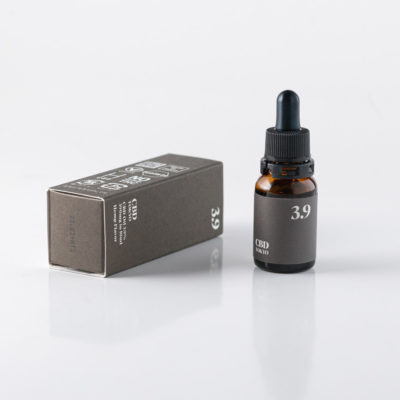CBD Articles, CBD in Japan, CBD Medical Science, Pain Control
CBD for Parkinson’s Disease: Exploring the Use of Cannabidiol and Cannabis
In recent years, the beneficial properties of Cannabidiol (CBD) and Cannabis have gained significant attention in the medical community and beyond. Particularly, their potential to alleviate symptoms of Parkinson’s disease is a topic of growing intrigue. This article aims to delve into the depth of this subject, providing a comprehensive understanding of how CBD and Cannabis could be harnessed in Parkinson’s disease management. We aspire to bring forth cogent analysis, current research findings, and expert perspectives, setting the foundation for a well-informed dialogue on this crucial topic.
Table of contents
Introduction to Parkinson’s and the Use of CBD
Parkinson’s disease (PD) is a progressive disorder impacting the nervous system, often dramatically affecting the patient’s mobility and overall quality of life. There has been an increasing interest in integrating CBD, or cannabidiol, into Parkinson’s treatment plans. CBD, a compound extracted from the cannabis plant, is largely considered safe for patients. Special focus has been given to its potential in alleviating certain PD symptoms. As patients search for supplementary or alternative treatment options, the potential therapeutic effects of CBD cannot be overlooked. Research indicates CBD may offer neuroprotective properties and significantly aid in symptom management for PD patients. However, appropriate dosage and direct correlation with symptom reduction remain an area for further robust scientific research. With advancements in research, CBD continues to emerge as a promising part of Parkinson’s disease treatment.

Cannabis and Its Connection to Medicine
The connection between cannabis and medicine has been extensively explored, especially about cannabinoids and their therapeutic effects. The use of cannabis products in medical treatments is becoming increasingly recognized, paving the way for the broader acceptance of medical cannabis worldwide. Cannabis and cannabinoids are now seen as potential treatments for a range of medical conditions. Medical marijuana, in particular, offers a noteworthy example of how this plant can be utilized in this context. Multiple studies have demonstrated that medical marijuana contains chemical compounds that can effectively alleviate symptoms associated with certain chronic illnesses. When it comes to marijuana and its medicinal properties, the focus often lies on harnessing these beneficial compounds for therapeutic purposes. Indeed, the future of medical treatments may very well lie in the intricate science of cannabinoids, shedding new light on the valuable role of cannabis in medicine.
A Brief Overview of Cannabis
Cannabis has increasingly become pivotal in developing medical products. Comprising more than 100 different cannabinoids, this plant holds a plethora of potential applications in medicine. Cannabis is renowned for its two main cannabinoids; tetrahydrocannabinol (THC) and cannabidiol (CBD). These compounds are of interest due to their diverse effects on the human body. For instance, THC is psychoactive, while CBD is not. The proliferation of cannabis-related products on the market shows the growing acceptance and application of this plant. However, due to the illegal status of cannabis in many parts of the world, there are some barriers in terms of research and accessibility. Yet, through careful studies and continuous exploration, the utility of cannabis in treating conditions, such as Parkinson’s disease, is increasingly becoming apparent.
Understanding Cannabidiol (CBD)
In striving to grasp the role of Cannabidiol (CBD) in medicine, we must first comprehend what CBD is. This naturally occurring compound, found in numerous CBD products, is one ingredient in medical marijuana. Unlike its cousin, delta-9-tetrahydrocannabinol (THC), CBD doesn’t produce a “high.” Scientific studies reveal that CBD’s impact on the brain could have potential medical benefits. Incorporating CBD products into medical treatments might offer significant relief for a range of conditions, notably Parkinson’s disease. These effects of CBD are being studied extensively. It’s imperative to know that while CBD and THC are in both marijuana and hemp, CBD products you find at a dispensary may have different amounts of each compound, depending on the source plant. When used responsibly, CBD offers promising possibilities in medical treatments. Make sure to consult with a medical professional when considering CBD use.
Dive into Cannabidiol
In our journey of understanding, few substances offer as much potential as cannabidiol, commonly called CBD. This non-psychoactive compound of cannabis, CBD, has been increasingly recognized for its therapeutic properties. Various CBD products are now being explored for potential benefits against a range of health issues, including Parkinson’s Disease. The application of CBD in medicine is an exciting frontier, and the inclusion of CBD products in therapeutic regimes could very well metamorphose our approach to managing several conditions. The key to this revolution lies in our understanding of CBD, its effects, and its potential. As you dive into the world of cannabidiol, it becomes imperative to comprehensively comprehend the unique benefits of CBD products. Hence, let’s dive into exploring CBD in-depth, so we can seek to harness its surprising potential and position ourselves at the cusp of a medical revolution.

Parkinson’s Disease: A Closer Read
Parkinson’s disease, often shortened to PD, is a serious health issue affecting an increasing number of patients worldwide. Regarded as a neurodegenerative disorder, it often leads to Parkinson’s dementia, a condition that severely impacts a patient’s quality of life. Research into alternative therapeutic approaches for Parkinson’s has turned our attention towards Cannabidiol, often known as CBD. Scholars have been focusing on understanding the potential benefits of CBD and cannabis for managing Parkinson’s symptoms. Growing evidence suggests Cannabis and its therapeutic connection to medicine offer promise for patients dealing with Parkinson’s and related health conditions such as dementia. While CBD offers potential benefits, individuals and healthcare providers need to take a closer read and understand the complex relationship between Parkinson’s, health, and CBD to potentially improve the quality of life for those affected by PD.
The Nature of Parkinson’s Disease
Parkinson’s disease, a neurodegenerative disorder, affects dopaminergic neurons in the human brain’s substantia nigra area. This results in a range of motor and non-motor symptoms. Known as Parkinson’s, it’s a condition that many researchers continue to explore, with a key focus on potential therapeutic interventions, notably including cannabidiol or CBD. The neural degeneration commonly associated with Parkinson’s disease hampers mobility, and typical management strategies have had limited effectiveness. Hence, CBD’s potential for symptomatic relief piques interest. The application of CBD in Parkinson’s serves as a novel approach, diverging from the conventional trajectory of pharmaceutical treatments for Parkinson’s Disease. Notably, the latter half of this article will delve deeper into this topic, elucidating the intricacies surrounding the use of CBD for Parkinson’s Disease.
APDA (American Parkinson Disease Association) on Parkinson’s
The American Parkinson’s Disease Association (APDA) plays a critical role in the battle against Parkinson’s disease. APDA continuously works to disseminate comprehensive information about Parkinson’s, facilitating a deeper understanding of the complexities entangled within this particular disorder. Parkinson’s disease, a neurodegenerative disease, occurs when there’s a reduction in the dopamine-producing cells in the brain. Furthermore, it’s been discovered through research, that there may be potential benefits in the administration of Cannabidiol (CBD) for those afflicted with this disease. The introduction of CBD into the treatment landscape has sparked exciting discourse around its possible applications in relieving various symptoms of Parkinson’s disease. Ultimately, the APDA is dedicated to spreading awareness and finding progressive solutions for the betterment of those battling Parkinson’s disease each day.
The Medical Potential of CBD for Parkinson’s
The medical potential of CBD for Parkinson’s disease is increasingly recognized in the health community. Numerous studies have identified CBD as a possible means to attenuate some of the debilitating symptoms associated with Parkinson’s. The antioxidant properties of CBD can diminish the nigrostriatal dopaminergic, which is often impaired in individuals with Parkinson’s. Moreover, oral CBD oil has been found to reduce psychotic symptoms in Parkinson’s patients, providing further evidence of CBD’s therapeutic potential. Researchers are optimistic that using CBD may even help to prevent the onset of Parkinson’s disease. As such, CBD has been discovered as an effective way to help treat the symptoms of this condition. The continued exploration of CBD for Parkinson’s disease inevitably contributes to its growing relevance in the health and medical fields.
Interplay between CBD and Parkinson’s
The growing interest in the interplay between CBD and Parkinson’s is drawing much attention in the scientific community. As a non-psychoactive component of Cannabis, CBD holds potential therapeutic benefits for conditions such as Parkinson’s disease. Advocates of CBD suggest its properties may beneficially interact with the neurodegenerative processes inherent in Parkinson’s. Recent studies on CBD have been significant in the medical world, with the American Parkinson’s Disease Association (APDA) taking an interest in the potential of CBD for Parkinson’s. Rigorous research on the effectiveness and safety of CBD for Parkinson’s is underway. Despite needing more comprehensive studies, the engaging relationship between CBD and Parkinson’s hints at a promising avenue in disease management strategies, offering hope to those living with Parkinson’s disease.
Clinical Trials & Studies
When it comes to understanding the potential benefits of CBD for Parkinson’s Disease, clinical trials and studies serve as valuable resources in our quest for knowledge. Research within the field is continuously evolving, with an increasing number of clinical trials being conducted to evaluate the therapeutic potential of Cannabidiol. Each new study brings with it the possibility of enhanced resources for patients and healthcare providers. Recent trials have highlighted the potential benefits of CBD in managing the symptoms of Parkinson’s. Yet, it is essential to note that further, more comprehensive studies are still required. The ongoing quest for knowledge continues, and it is through these trials and study-focused resources that we hope to unlock the full medical potential of CBD for Parkinson’s.
Patient Testimonials & Anecdotal Evidence
There is a growing repository of testimonials from Parkinson’s patients who report the symptomatic relief achieved from the use of CBD. It is essential to note that these are anecdotal pieces of evidence, and while they are powerful, they lack the scientific rigor of studies and trials. However, they do offer a window into the lived experiences of people with Parkinson’s disease who have turned to CBD for relief. Some people have reported improvements in motor control, while others have experienced a reduction in tremors and muscle rigidity. Reports from PubMed also indicate that patients have experienced a boost in their overall quality of life, with CBD helping to alleviate non-motor symptoms. As more people living with Parkinson’s try CBD, there are sure to be more testimonials and anecdotes coming back to us with promising outcomes.
Considerations & Precautions
When considering CBD for Parkinson’s treatment, it’s crucial to note that its usage as a remedy is still in the experimental phase. Care must be exercised due to its possible effects – both beneficial and adverse – and the Parkinson Foundation emphasizes on the importance of consulting a healthcare professional. In the UK, similar precautions are advised. Those living with Parkinson’s, including Parkinson’s dementia, may turn to complementary therapies as part of an integrated home care approach to enhance the quality of their daily life. However, it’s vital to be cognizant of potential problems, such as unpredictable reactions or counteractions with prescribed medications. Hence, complementary care should be undertaken thoughtfully, keeping in mind its possible effects, and always under medical supervision, to ensure the well-being of those grappling with Parkinson’s and to give them the strength to fight back against this debilitating disease.
Dosage & Application
For optimal effects, we recommend a proper dosage of CBD, ideally with a minimal inclusion of THC. THC, present in hemp, may complement CBD therapies for Parkinson’s. However, THC is not for everyone due to its psychoactive properties. If tolerated well, THC could enhance hemp-based therapies, offering potentially greater relief. As for CBD therapies, they should be customized. A ‘one-size-fits-all’ approach is not applicable when it comes to therapies using compounds like CBD and THC from hemp. Each case of Parkinson’s is unique, and therapies, including CBD and THC dosages, should be personalized. Experts suggest starting with small dosages, gradually increasing based on individual responses. It is pivotal to consult healthcare professionals about incorporating hemp, THC, and CBD in your therapies for Parkinson’s.
Side Effects & Drug Interactions
In the exploration of CBD for Parkinson’s Disease, it’s vital to consider potential side effects and drug interactions. While CBD shows promising effects in the management of Parkinson’s symptoms, its effects can vary among individuals. The FDA regulates CBD-derived products and monitors the effects on patients. As with any substance, possible side effects should not be downplayed. Mild effects can include nausea and fatigue, while more severe effects may involve interactions with other medications. It’s imperative to consult your physician to understand potential reactions to FDA-approved medications. Overall, the effects of CBD in treating Parkinson’s present an interesting area for continued research by the FDA. It’s prudent to remain cautious, recognizing the potential for both positive effects and side effects, to make informed healthcare decisions.
Conclusion
In conclusion, the study and medical view of CBD and cannabinoids as potential treatments in patients’ health show significant promise, notably in the context of Parkinson’s disease. The community is witnessing an upsurge of interest and understanding in CBD, and patient testimonials substantiate this trend. Cannabinoids, such as CBD, present in cannabis, have displayed potential as therapies to improve the quality of life. Adequate dosage and application of quality CBD therapies, according to medical advice, have elicited positive health effects. Nevertheless, it is of the essence to take into account potential side effects and drug interactions. Further clinical trials and studies may amplify our comprehension of the interplay between CBD and Parkinson’s, providing more concrete evidence for cannabis products as viable medical treatments for patients.
The Future of CBD in Parkinson’s Management
The future of CBD in Parkinson’s management is promising. Medical professionals are increasingly recognising CBD’s potential as a health option for patients struggling with Parkinson’s disease. As we continue to dissect the complex relationship between CBD and Parkinson’s, we can look forward to the development of innovative treatment strategies that utilize this dynamic compound. Notably, CBD products derived from medical-grade cannabis stand to play a pivotal role in revolutionizing Parkinson’s management. However, it’s crucial to acknowledge that more rigorous clinical trials and studies are required to establish definitive guidelines for the safe and effective use of CBD in patients with Parkinson’s disease. In conclusion, the use of CBD and cannabis in Parkinson’s treatment may signify a major advance in health science.

Encouraging Further Exploration
As we view the future of medical treatment for Parkinson’s, the use of CBD holds potential. With an increasing number of studies pointing to its benefits, it beckons further exploration, especially in light of anecdotal evidence and testimonials. Our understanding of CBD and its interplay with Parkinson’s has hugely expanded, bringing us closer to realizing its full potential. There is a sense of anticipation about what the future holds, particularly given the encouraging outcomes of clinical trials and studies. Despite existing concerns around side effects and potential drug interactions, suitable dosage and application hold promise. As advocates and researchers continue pushing for the patient community, there’s hope that CBD-based treatments will become mainstream shortly.
In conclusion, Cannabidiol or CBD’s potential benefits in treating and managing Parkinson’s Disease symptoms are encouraging, and the body of research is growing. The therapeutic properties of CBD, such as its anti-inflammatory and neuroprotective effects, appear to offer promising results. It can provide a safe, natural, and effective way to facilitate symptom management and enhance patients’ quality of life. However, thorough research is still required to establish definitive clinical guidelines. As always, it is crucial to consult with healthcare professionals before starting any new treatment regimen. The future of CBD for Parkinson’s Disease looks positive and filled with immense potential.
Before you go, just remember:
- Parkinson’s disease impairs motor function, causes body tremors, and can even lead to dementia
- There is no cure for PD, and traditional treatment often comes with unwanted side-effects
- Research on CBD for Parkinson’s disease has turned up mixed results so far but shows potential
- Some evidence points to CBD being a fast-acting method to reduce PD tremors








